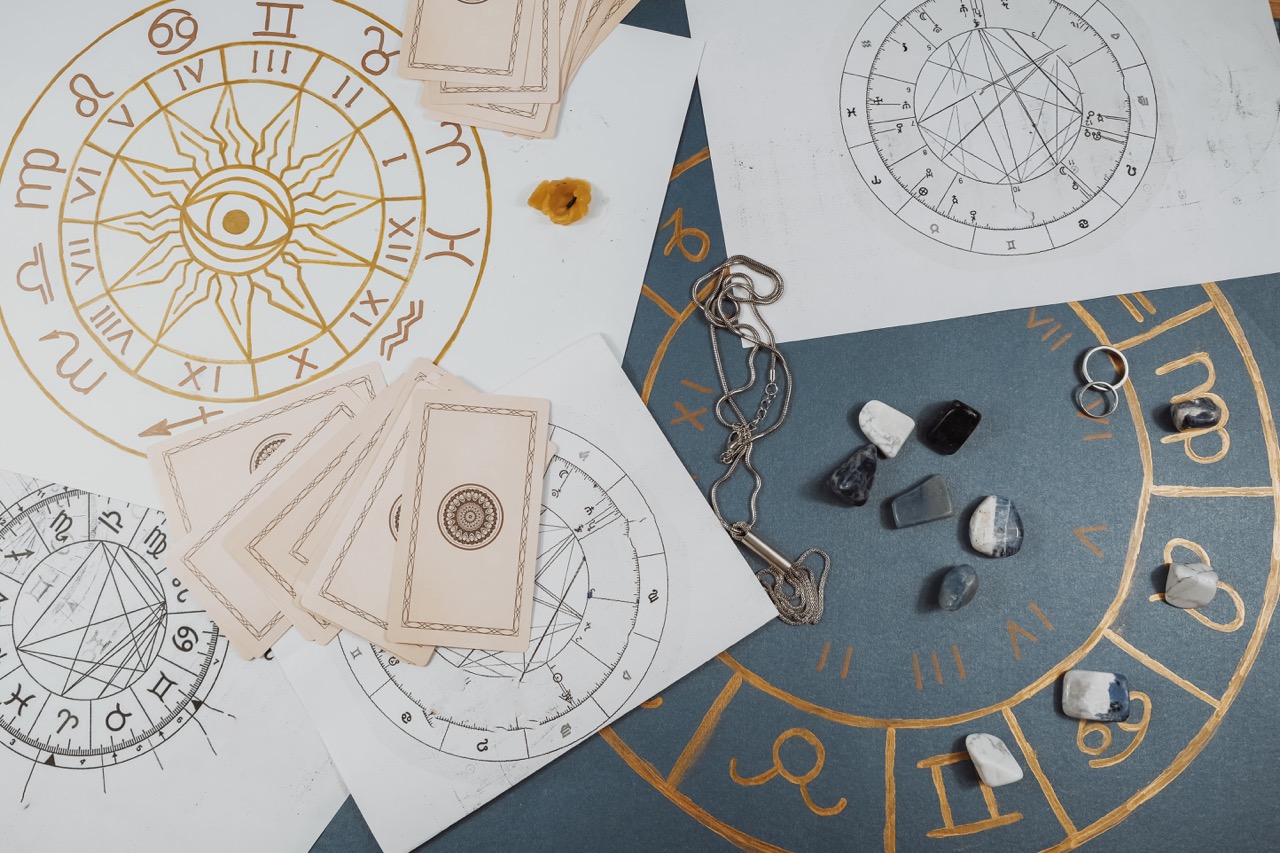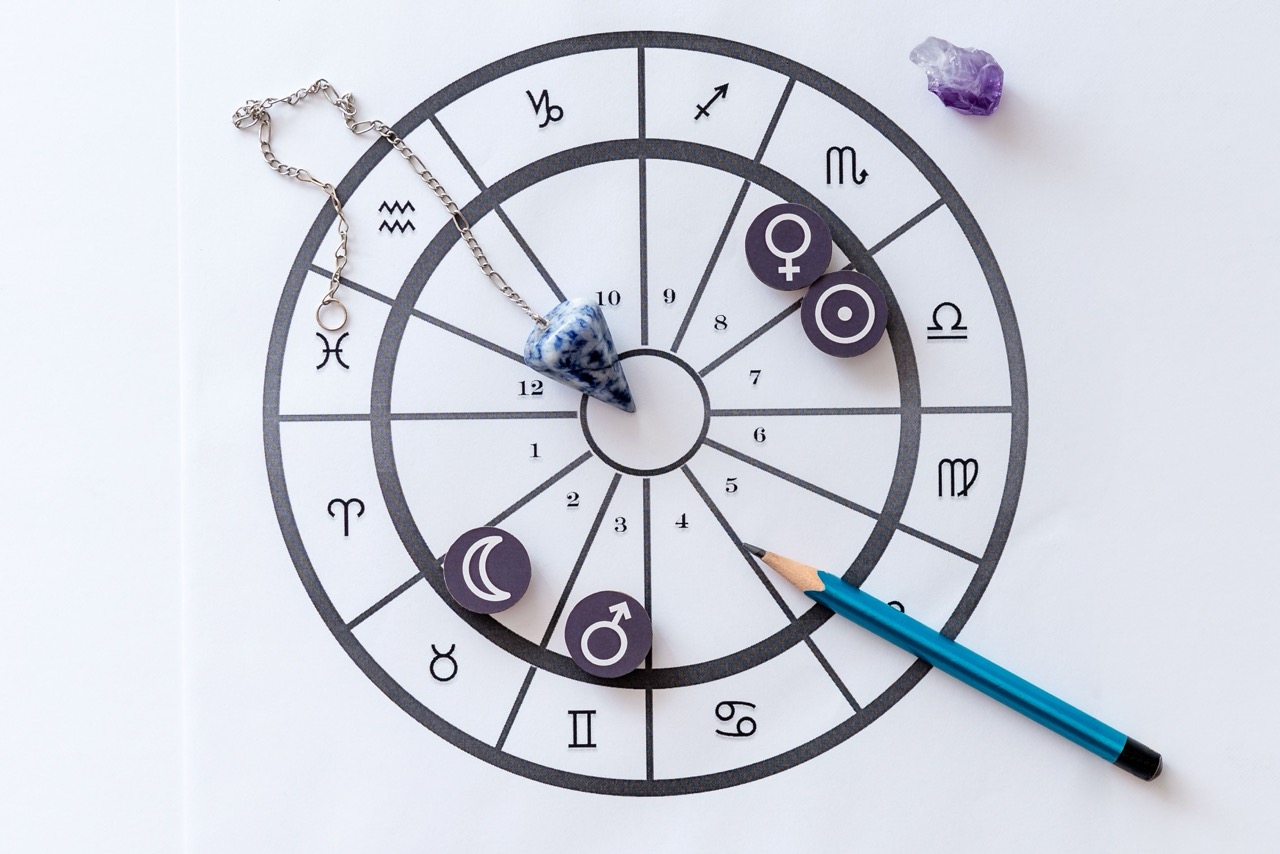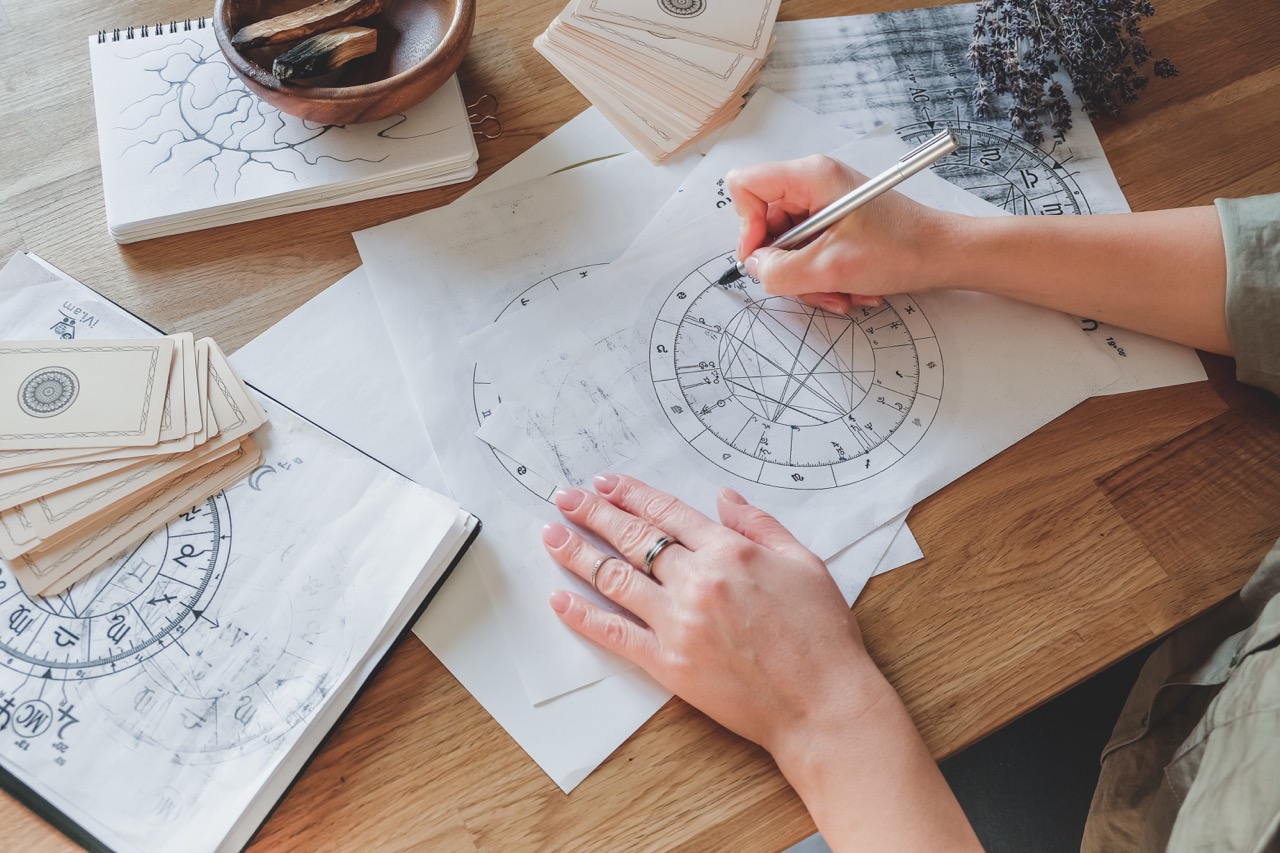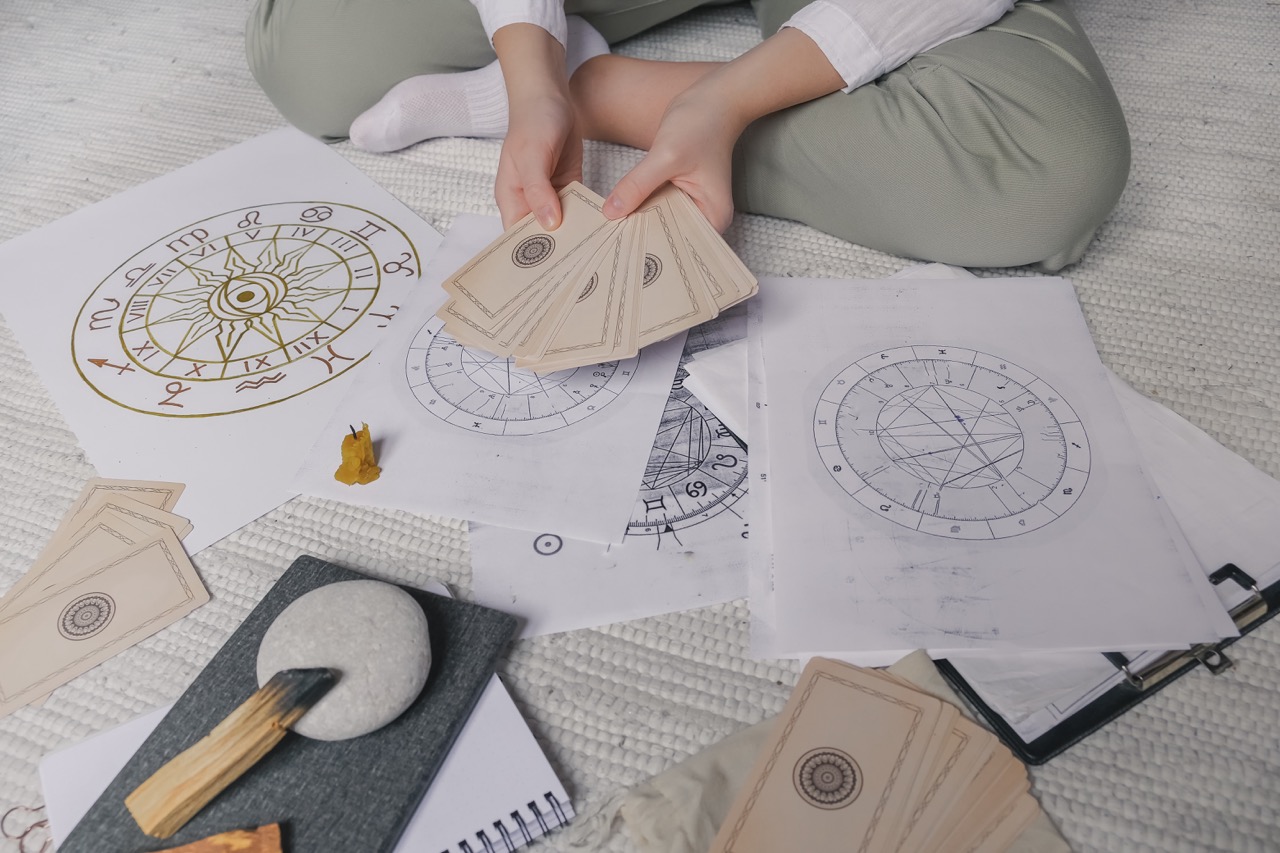In an era defined by empirical evidence and scientific inquiry, the age-old practice of astrology continues to capture the imagination of many. Some view astrology as a window into fate, a cosmic roadmap that predicts their future, while others dismiss it as mere superstition. This article embarks on a journey through the celestial tapestry of astrology, examining its historical roots, contemporary relevance, and the perennial debate between skepticism and belief.
The Cosmic Dance: Exploring Astrology’s Ancient Roots
Astrology traces its origins back thousands of years, woven into the fabric of ancient civilizations. The Babylonians, around the second millennium BCE, were among the pioneers who gazed at the stars and linked celestial movements to earthly events. They meticulously recorded the positions of planets and stars, believing these heavenly bodies held vital clues to the human experience. The cosmos became a grand stage, where each celestial body played a role in the unfolding drama of life.
As astrology spread across cultures, it picked up diverse interpretations. The Greeks, particularly figures like Ptolemy, popularized the idea that one’s birth chart could reveal personality traits and life paths. Meanwhile, the Chinese developed their own astrological systems, rooted in lunar cycles and the harmony of the five elements. From these ancient practices emerged a rich tapestry of astrological beliefs, each claiming to unveil the mysteries of the universe and humanity’s place within it.
Today, the remnants of these ancient traditions continue to influence modern astrology. The concept of zodiac signs, essential in contemporary horoscopes, has its roots in these early astrological systems. As we navigate our lives, we often turn to the stars, seeking guidance and insight from the cosmic dance that has captivated humans for millennia. The allure of astrology lies not only in its historical significance but also in its ability to resonate with the human condition, making us yearn for a deeper understanding of ourselves and our destinies.
Stars Align: The Allure of Predictive Astrology Today
In a world filled with uncertainties, the appeal of predictive astrology remains strong. Many individuals seek assurance in an unpredictable landscape, turning to astrological forecasts for insights into their future. The rise of internet-based astrology platforms has made these predictions more accessible than ever. People scan their daily horoscopes like a weather report, hoping for guidance on love, career, and personal fulfillment.
Astrologers, with their interpretations of planetary alignments and transits, offer a sense of control amidst chaos. The prospect of anticipating significant life events fosters a comforting belief that one’s path is somehow written in the stars. Fans of astrology often describe profound moments of clarity when a prediction aligns with their lived experience, reinforcing their belief in its accuracy. This cyclical validation reaffirms their investment in the practice, forming a bond between the celestial and the personal.
However, the allure of predictive astrology is not without criticism. Detractors argue that the vague nature of many astrological predictions makes it easy for individuals to interpret them in a way that fits their lives. Yet, the emotional and psychological benefits of astrology—offering hope, reflection, and a framework for understanding change—cannot be easily dismissed. In this dance of belief and skepticism, astrology finds itself perpetually relevant, captivating those who seek answers among the stars.
Skeptics and Believers: Divided by the Zodiac’s Mystique
Astrology finds itself at the crossroads of belief and skepticism, often sparking intense debates. Skeptics question the validity of astrological claims, arguing that there is no scientific basis for the correlation between celestial movements and human behavior. They cite the lack of empirical evidence and the influence of cognitive biases, suggesting that people often see patterns where none exist, a phenomenon known as the Forer effect.
On the other side of the spectrum, believers passionately defend astrology’s significance in their lives. They argue that astrology serves as a guiding tool—an intuitive map that navigates them through complex emotional landscapes. For many, it acts as a source of comfort, providing explanations for events that, on the surface, may seem random or chaotic. Through this lens, astrology transcends mere superstition; it becomes a deeply personal practice that fosters self-understanding and connection with something greater than oneself.
This division often leads to spirited discussions that highlight the complexity of the human experience. Skeptics may view astrology as an outdated relic, while believers reveal how it empowers them to make sense of their lives. At the heart of this discourse lies an exploration of faith, the unknown, and the innate human desire to find meaning in our existence. Whether one finds solace in the stars or remains grounded in skepticism, the dialogue surrounding astrology reflects the intricate tapestry of belief systems that shape our understanding of the universe.
Reading Between the Lines: What Charts Really Reveal
Astrology charts—intricate maps of the sky at the moment of one’s birth—serve as the cornerstone of astrological interpretation. These charts depict not just the sun, moon, and planets, but also the relationships between celestial bodies, known as aspects. Each element in the chart represents different facets of life, from personal identity to relationships and career aspirations. However, interpreting these charts requires a nuanced understanding, as they are often laden with symbolic meaning.
Astrologers contend that while charts can reveal potential strengths and challenges, they do not dictate an unchangeable fate. Instead, they offer insights that individuals can use to navigate their life paths. For many, the true value of astrology lies not in the predictions themselves, but in the reflective process it encourages. Analyzing one’s chart can prompt self-discovery, illuminating patterns in behavior and thought that may have otherwise gone unnoticed. This introspective journey can empower individuals to make informed decisions about their futures.
Yet, the complexity of astrology also raises questions about interpretation. Different astrologers may arrive at varied conclusions from the same chart, leading to concerns about subjectivity. This variability underscores the importance of critical thinking in astrology—using it as a tool for self-exploration rather than a deterministic guide. Ultimately, while charts can provide glimpses into possible futures, it is the individual’s choices and actions that ultimately shape their life’s narrative.
Serendipity or Fate? The Role of Free Will in Predictions
One of the most profound questions posed by astrology is the balance between fate and free will. Are our destinies predetermined by the stars, or do our choices hold the power to shape our paths? This age-old inquiry has fueled endless debate among astrologers and skeptics alike. Many believe that astrology provides a framework for understanding potential life events, but it is the exercise of free will that ultimately dictates one’s journey.
Astrologers often emphasize that while certain patterns may emerge from astrological forecasts, individuals still possess the agency to make choices. They argue that astrology can serve as a guide, revealing opportunities and challenges but allowing room for personal growth and transformation. This perspective suggests that astrology acts as a mirror, reflecting the energies present in a person’s life rather than enforcing a rigid script.
In this light, astrology and free will can coexist harmoniously. The concept of fate may be seen as a backdrop against which individuals navigate their lives, making decisions that can lead to unexpected outcomes. This dynamic interplay invites individuals to engage with their circumstances actively, fostering a sense of empowerment. In essence, astrology becomes a tool for self-awareness, encouraging individuals to recognize their role in shaping their destinies while acknowledging the cosmic influences that may be at play.
Beyond the Horoscope: Astrology’s Place in Modern Life
In contemporary society, astrology has evolved from a mystical practice to a cultural phenomenon, permeating various aspects of modern life. Social media platforms are awash with astrological content, from memes about zodiac signs to in-depth analyses of planetary transits. People share their astrological insights not just for entertainment, but as a way to foster connection and community. The language of the zodiac has become a shared vernacular, allowing for conversations about personality traits, relationships, and emotional experiences rooted in astrological archetypes.
Moreover, astrology has found its way into wellness and self-care movements. Many individuals incorporate astrological insights into their daily routines, using them to inform decisions about self-care practices, timing for new ventures, or even relationship dynamics. The rise of apps and online services that provide tailored astrological readings has made these insights more accessible, inviting a diverse audience to engage with astrology beyond traditional practices.
Despite its widespread acceptance, astrology remains a polarizing topic. For some, it is a valuable tool for introspection and personal growth; for others, it is a source of skepticism. Yet, its omnipresence in popular culture speaks to a deeper yearning for connection to the universe and oneself. As modern life grows more complex, astrology serves as a reminder of our shared human experience, rooted in the very cosmos that surrounds us.
As we ponder the question of whether astrology can predict the future, it becomes clear that its significance transcends mere forecasting. Whether viewed through the lens of skepticism or belief, astrology invites us to explore the intricate relationship between the cosmos and our lives. It offers a unique perspective on human experience, encouraging reflection, fostering community, and igniting curiosity about the mysteries that govern our existence. In a world where the future remains uncertain, astrology stands as a testament to humanity’s enduring quest for understanding, connection, and meaning in the dance of life.



